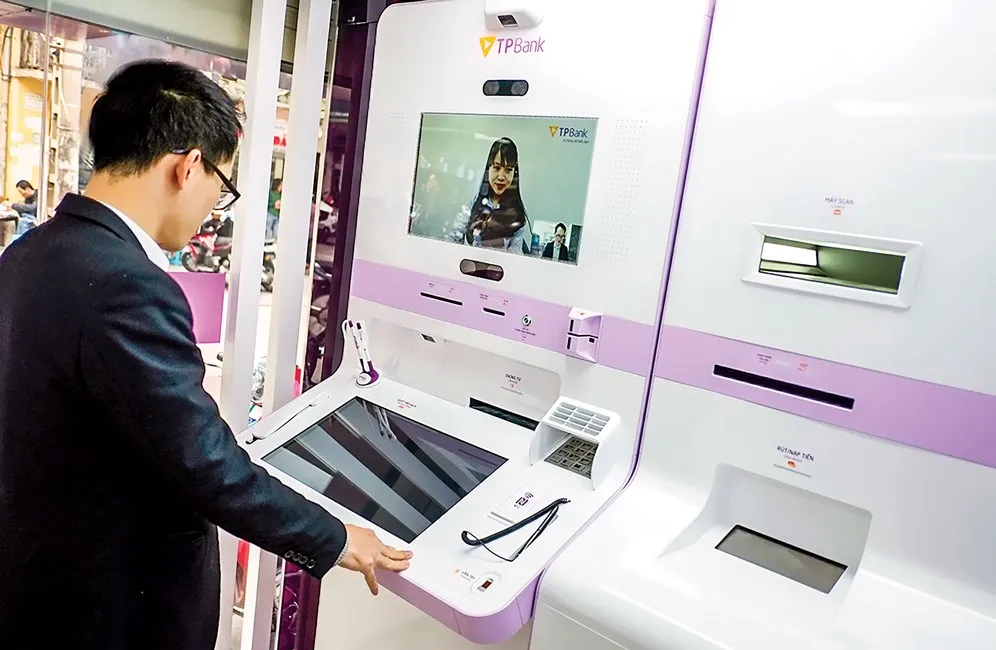
Speaking with Saigon Investment, Dr. Đặng Hùng Sơn, Deputy Director of Banking Technology Development Research Institute, National University of Ho Chi Minh City, said that most banks develop digital banking by optimizing their current businesses. There are only a few banks actually turning into digital banks.
JOURNALIST: - What do you think about the development of digital banking in Vietnam?
Dr. ĐẶNG HÙNG SƠN: - The first online banking model appeared in 1983 in the United States, then later in France and England with a simple interface, providing the most basic banking services, such as money transfer, account queries or payment of utility bills.
During 1980-2000, e-commerce companies like Amazon and eBay were born. They helped promote the development of online payment. However, online banking only boomed when the internet became popular.
In the period 2000-2017, mobile banking emerged, thanks to wireless internet and mobile phone technology. This model helped banks cut transaction costs and became popular among the youth. During this time, this popular form of internet banking was combined with digitalizing the customer interactive interface, but still operated on traditional processing systems due to limitations in infrastructure and data and risk management.
Fintech thrived in the late 2010s, creating some new models such as open banks, banking based on blockchain technology, and allowing third parties to access customer information from member banks in real time through which customers could manage many products and services from different banks on one application.
In Vietnam, digital banks currently have two forms: fully digital banks (no need for branches or facilities, and all transactions are online) and banks that have just started using technology in their operations. However, fully digital banks are quite rare, as most digital banks are only using digital banking to optimize their current businesses.
- As you've analyzed, it seems that banks in Vietnam are investing in digital banking just because the others are doing so?
- Normally, everyone operating in the same industry always looks at the other. When other banks upgrade their products and services to improve user experience, it cannot be ignored.
In the past, I used to go directly to banks to do transactions, but now I only use mobile banking applications to send or transfer money because the banks have developed and upgraded many applications to increase facilities for users. It is the trend in new development.
But in my observation, big banks are more serious and determined to push this field because they have big budgets for spending, while the small banks have not invested much. Investing in digital banking depends on many factors, such as calculating the size of development, or whether the capital is approved by the investor or not. In addition, there is the need to balance the budget with current operations, such as operating costs and staff costs, so small banks have to calculate carefully.
- There is an opinion that fintech companies are both an opportunity and a pressure on digital banking in banks, what are your views?
- I don't see the pressure of fintech on digital banking. The more important issue is the perception of banks for fintech. If banks determine that fintech is not a pressure, the two sides will have the opportunity to work together, because we really cannot predict how fintech will develop. Fintech is very important as it provides a financial platform to help carry out many banking transactions. Therefore, the legal system and leading agencies need to look back to facilitate fintech companies to develop.
Currently in Vietnam, according to the statistics of the research group VNUHCM-IBT, most commercial banks have links with fintech companies. The leading banks in this trend are Vietcombank (having links with 30 companies), VietinBank, MB (26 companies), VIB, Sacombank, VPBank (25 companies).
- As each bank develops digital banking on its own way as they are doing now, do you think they need support to connect with each other so that people can use the utilities synchronously?
- I support the competition in investing and developing the digital banking segment among banks. Infrastructure investment is one story, however, the users accept it or not is another story. Therefore, besides investing, there should be educational programs about comprehensive financial and mobile banking and online banking to help digital banks become more popular.
Synchronized development depends on the related regulators. If the related agencies have a policy of developing digital banking, banks will sit together to consider co-development; the State Bank can lend banks with low interest rates to deploy this; and big banks that have successfully converted to digital banking will help other banks convert to digital banking as well.
However, as I said, it depends on the agency's perception of the need for this model.
- Thank you very much.




















